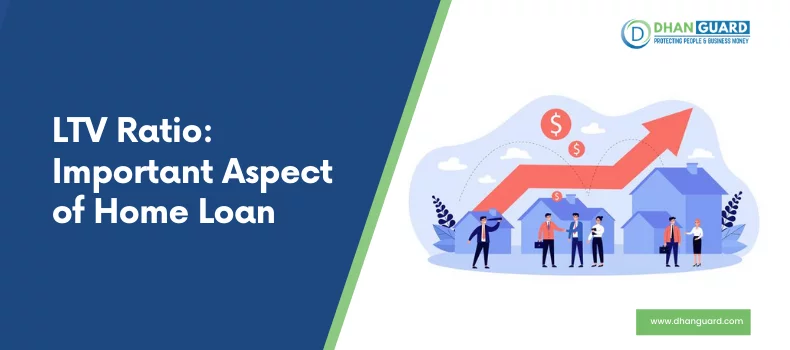Every year, large numbers of non-residents from around the world purchase flats and villas in the UAE. Some are looking for world-leading tax-free rental rates of up to 10% on tiny apartments, while others are looking for lifestyle investments or tax-free capital gains.
While the UAE real estate market has had its ups and downs, it is by far the most regulated and transparent in the region. Recent regulatory developments in the UAE have further opened up UAE homes to international purchasers, making the UAE real estate market even more appealing. The recent changes in UAE regulation have increased the availability of UAE properties to international purchasers and have had a substantial impact on the sector.
Because of the low loan rates and inexpensive pricing, both local and foreign investors have been looking at the UAE's broad real estate market. Foreign investors who want to buy a home without putting their finances in jeopardy might acquire a Home Loan for Non-Residents.
If you'd like to learn more about who is qualified for non-resident home loans in the UAE and how they work, contact our specialists at Dhanguard. We will guide you through the process of obtaining a house loan in the UAE as a non-resident.
What are the Advantages of Non-Resident Home Loan in Dubai?
Non-resident Home Loan has a number of advantages when purchasing a home in Dubai. If you're still on the fence about whether or not to acquire a home in Dubai, consider the following strategic benefits of doing so.
Rental Properties with a High Rental Yield
Non-residents might benefit from high rental returns on their Dubai investments. In Dubai, villa homes provide a return on investment of up to 6%, while apartment communities have rental yields of up to 7%.
Property Prices That Are Competitive
The competitive costs for homes in Dubai when compared to other large cosmopolitan cities is one of the most significant advantages a foreign investor may enjoy. Dubai is widely regarded as the best place in the world to purchase luxurious yet reasonable real estate.
A Tax System That is Investor-Friendly
Dubai's tax system is favorable to investors. Another advantage for foreigners purchasing property in Dubai is this. The UAE does not levy any taxes on property acquisitions or rental revenue derived from these purchases. It allows foreign investors to reap the benefits of buying a property in Dubai while also earning a respectable return on their investment.
A Residence Permit
Foreign nationals can obtain a residency visa in Dubai by purchasing real estate. Real estate investors with property worth AED 5 million are now eligible for a five-year residence visa in the UAE, thanks to the introduction of long-term visas. There are, however, additional requirements that must be met.
Services for Property Management
Some non-residents are always looking to buy property in Dubai just as an investment. They can use the property management services that are available to them. It will make it easier for non-residents to maintain their property and deal with legal issues.
Is it possible to Receive a Non-Resident Home Loan in the UAE?
Yes, foreign investors who want to buy a home in the UAE to add to their real estate portfolio or use as a holiday home can acquire a home loan. As a foreign investor, they will benefit from a variety of advantages, including higher loan amounts and greater lending flexibility. It's vital to keep in mind, however, that non-resident international investors have fewer options for home financing than UAE citizens or emigrants.
Which Foreign Investors are Eligible to get a Non-Resident Home Loan in UAE?
Before applying for a Non-Resident Home Loan in the UAE, you must first ensure that you match the eligibility requirements. You should be aware that following criteria are a general guideline that may vary from bank to bank in the UAE:
The eligibility criteria are as follows:
- Before applying for a non-resident home loan in the UAE, you must be a citizen of one of the countries on the bank's list.
- To apply for a non-resident loan, you must be a salaried or self-employed individual.
- Some banks in the UAE have age restrictions for non-resident loan applicants. To apply for a home loan in the UAE, for example, a few banks require non-resident applicants to be over the age of 25.
- You must also meet the bank's monthly minimum income criteria. Non-residents and UAE emigrants may have different experiences. Furthermore, after tax deductions, this minimum income level must be satisfied. For example, a few banks demand non-residents to have a monthly income of at least AED 25,000 after taxes to be eligible for loans.
- Some banks also maintain a list of approved real estate developers and proposals for home loan funding. Before applying for a house loan, double-check that your property is on the approved list.
What Documents are Necessary to Obtain a Non-Resident Home Loan?
Non-residents of the UAE must present particular documentation when applying for a house loan. Remember that, depending on the property you're buying, additional documentation, as well as the terms of the deal, may be necessary.
Non-resident applicants for house loans in the UAE must present the following papers in general:
- Valid passport to be submitted as proof of identity.
- Bank statements for the last 3 to 6 months to be submitted as proof of funds.
- You can be asked to produce additional documents, such as:
- Tax returns (if applicable)
- Salary certificates / payslips (if you are a salaried individual)
- Trade licence & audited financial statements (if you are self-employed)
- Details of any pre-existing loans
A Step-by-Step guide for Obtaining a Non-Resident Home Loan
The following are the procedures you must take in order to obtain a mortgage in Dubai.
Step 1: Decide whether you want to talk with a mortgage expert or hire a broker to help you choose from a variety of mortgage possibilities.
Step 2: Select a mortgage that meets your requirements. After that, locate a local attorney who can assist you with the deal.
Step 3: Submit the papers necessary by the bank in order to obtain a pre-approval for financing.
Step 4: Find a house that meets your budget and negotiate a fixed purchase price with the seller.
Step 5: Make the required advance payments to secure your purchase and choose a completion date.
Step 6: Provide all relevant papers to complete the transaction.
Conclusion
Have you considered buying a home in the United Arab Emirates? Whether you're wanting to invest in the UAE property market or require a house away from home, Dhanguard welcomes you with a Non-Resident Home Loan package that doubles your purchasing power
DhanGuard: All-in-One Solution for Business Setup in Dubai, UAE
DhanGuard is your ultimate one-stop solution for all your business needs. Whether you’re planning to set up a new company or expand your existing business in the UAE, we’ve got you covered with our comprehensive range of services. From Company Formation in UAE and Business Bank Account in UAE services to managing your financial and legal compliance, we provide everything you need under one roof.
Our services include:
- Company Formation in UAE and Dubai
- Opening a Business Bank Account in UAE and Dubai with a 99% success rate
- VAT & Corporate Tax Compliance
- Accounting, Bookkeeping, and Auditing Services
- Trade License Renewal
- Golden Visa Assistance
Let DhanGuard make your journey of Business Setup in Dubai seamless and hassle-free!















